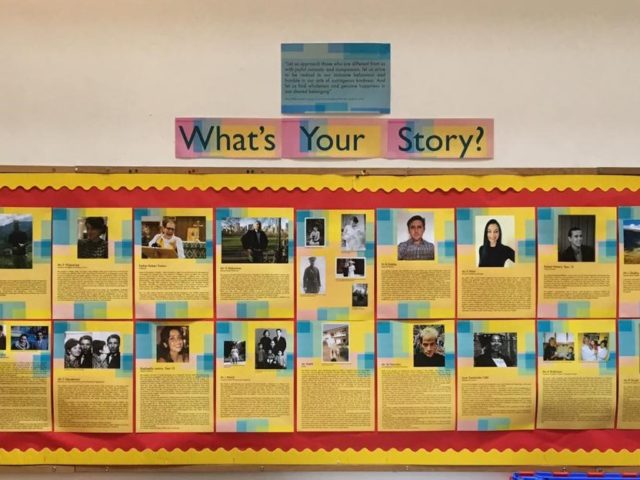I am having one of those days. I was convinced that I had started this blog a week or so ago and had saved it but the draft is nowhere to be found on the system. The chances that this is human rather than software failing are so high that I am kicking off again. I headed back to my (non-technical, hard-back) notebook to see what jottings had guided me; a lot of these made sense but the final comment, ‘Cats?’, eluded me for some time. Still, I rather like a challenge, so I thought I would see if I could work cats into this blog, the topic of which is meant to be, well, let’s see if you can make it out. (I like to think of blog-writing as blog roulette: you take whatever theme comes your way and get writing; priests and pastors call this ‘lectionary roulette’, I guess.)
We have been taking a periodic look at school rewards to see if we are being fair in the way we award them and if we are using them well to motivate our young people in what they do. The outcome of the many discussions and sensible suggestions has been a very welcome increase in the number of alphas (for academic effort and achievement) and Mallinson Points (for co-curricular involvement); the latter take their name, like our sports centre, from Theodore Mallinson, a wonderful, committed and long-serving colleague who started his Highgate teaching career in 1939 as a modern linguist, becoming a Housemaster, CCF Commander, Archivist, fund-raiser and friend to all alumni, and spending the remainder of working life, and all of his retirement, until his death aged 99 a mere decade ago, working for and with the school. Asked what they want from rewards, beyond lunch-queue passes or tuck shop priority, pupils would like, they say, greater consistency.
Quite right, and we’re looking at that. But try as we might, there doesn’t seem to be ‘a perfect system’, and I found myself trying to explain to the pupils who come to talk to the School’s Senior Team about what’s what: at the heart of a reward system, there are human beings, and anything very human will be inconsistent; anything really worthwhile will be human (that is, rather than automatic). The pleasure in a reward lies in part in the interaction between two human beings who know each other: that moment of recognition (so often in the eye contact!) by people whom we know and respect, whose opinion matters to us. Understanding how that respect is won requires the young person (any person) to make something of an empathetic leap into the reward-holder’s world of values, and an ability to de-cypher how that trusted elder expresses their admiration. Of course, we strive all of us to promote and articulate shared values and to acknowledge in similar ways agreed achievements and behaviours that will make for a supportive, productive community; but such a connection requires imagination and understanding on both sides, the human equivalent of knowing what the exam spec is. It’s useful learning to work out how one’s elders or bosses express their admiration and appreciation.
Earlier this week, in between starting, losing and re-starting blogs, I met eight hardened veterans of Year 13 whose academic efforts and achievements had been identified as particularly sparkling: the Head of Sixth Form was worried that their work or rather, the way they had chosen to work, might get overlooked in the mounting, pacey application which characterises pretty much all last-year pupils on the home straight to final examinations. They exemplified a number of different types, ranging from those who never leave a stone unturned in their forensic scholarship to those whose stoic determination is relatively recent but strikingly effective. I pressed a Head’s Commendation into their hands. I don’t know whether the few minutes together will make a difference, and I certainly won’t pretend that there aren’t others who might have been just as deserving, but I really hope that the fact of their teachers having picked them out for that praise will ensure they feel noticed and appreciated.
The judges of the Times Educational Supplement picked out Highgate School for reward last week and named us independent school of the year. Much like the pupils I met who, I am sure, didn’t work so very hard to get a Head’s commendation, the schools who were short-listed for the TES awards won’t have done all the marvellous things which the TES judges had unearthed (see here for details) to win an award. But it was an object lesson in how recognition and acknowledgement make such a difference, and we have been bowled over by the kind words of congratulations that have reached us: thank you!
The Pettitt home has been joined recently by two stray cats, Tom and Jerry. Being young and motherless, they crave human attention and their wide eyes constantly track us to check we are interested in them and what they are doing. No doubt, this need for affection and recognition will wane as they get older but, for the moment, they know precisely how to work their reward system. It’s a bit of a stretch, I know, to compare bright human youngsters with our feline waifs, but our lovely vet’s comment that he had never seen cats quite so open and willing to engage with human beings made me feel that if recognition and reward work for our cats, why shouldn’t it be working for our young people. Or that, at least, is what I think ‘Cats?’ may have meant.

